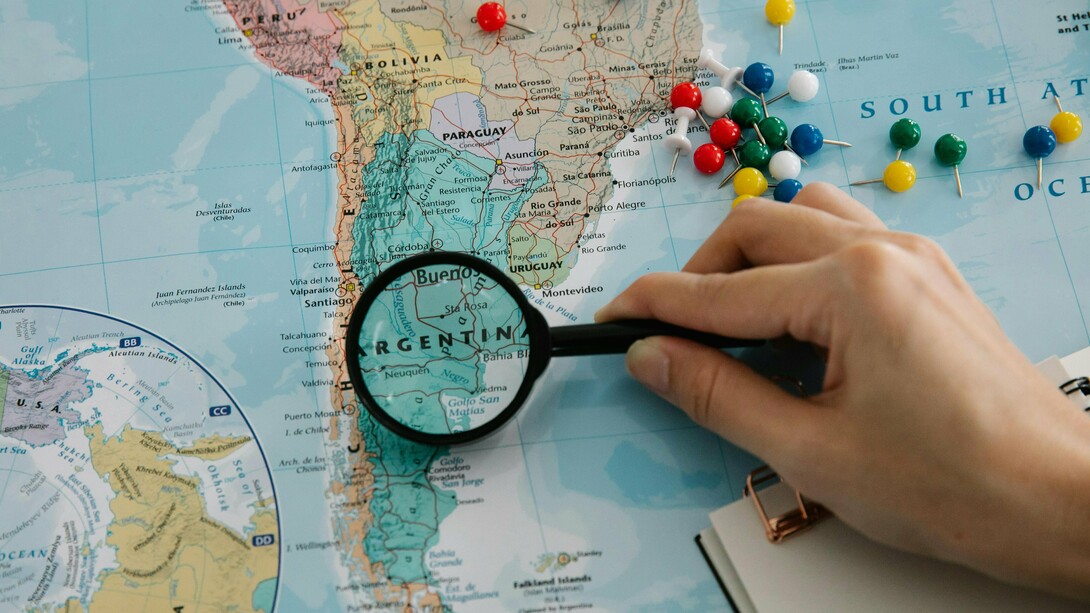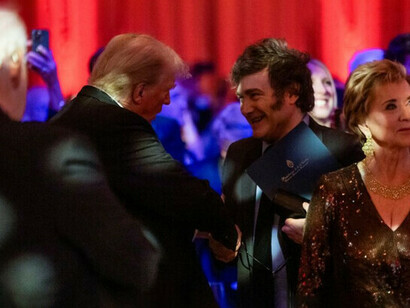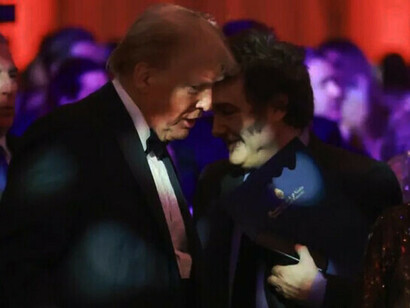Javier Milei's government began in December 2023 with the promise of ending the political caste, reducing the size of the state, and putting the chainsaw to work, which became a symbol of his administration and was presented as a gift during his first visit to the United States. On 26 October, the government won the legislative elections. Milei now dreams of a bright future for his country, harking back to the early decades of the 20th century when Argentina was one of the richest countries in the world.
However, political instability and broken promises have shaped Argentina's current reality, despite it being one of the most important countries in Latin America in terms of natural and human resources. The recent elections brought an unexpected victory for President Milei's government and his party, La Libertad Avanza, which was formed in 2022 and suffered a painful defeat in the province of Buenos Aires on 7 September, when Governor Axel Kicillof, a Justicialist or Peronist representative, won by a large majority.
Therefore, it is difficult to explain why President Milei celebrated a "historic" victory just a few weeks later, which he says will mark the beginning of the "second generation of reforms", focusing on labour and tax markets. However, this victory does not give him an absolute majority, meaning he will have to negotiate the new reforms he intends to implement. These reforms would significantly reduce the size of the state and eliminate many social guarantees that form part of Argentine culture, in which every citizen has grown up under the Peronist principles of social justice and economic independence.
This explains the strong reaction to President Trump's comments in Washington two weeks before the elections, when Milei went to ask for a $20 billion economic lifeline. He had to endure the president's offensive words, including the claim that 'people are starving in Argentina', and the condition that aid would be dependent on Trump winning the election. 'If he loses, we will not be generous,' Trump said. The United States will then present itself as a good friend with an open wallet. It has already begun to transfer the loan in the form of a currency swap between the U.S. Treasury Department and the Central Bank of Argentina. This pleased the voters who supported Milei, but it will increase Argentina's debt, which already exceeds $300 billion.
It is unclear what President Milei offered Trump, but it is evident that he has revived the old Monroe Doctrine of 'America for Americans'. Keeping China at bay is a priority, and Milei will have to maintain a delicate balance due to the debts incurred with Beijing. Meanwhile, Washington has begun to apply a policy of shooting and destroying vessels allegedly transporting drugs in the Caribbean Sea and the Pacific, off the coasts of Venezuela and Colombia, without stopping or questioning them. To date, 14 vessels have been destroyed, and 61 people have been killed.
What explains the Argentine people's support for President Milei's reform programme? Undoubtedly, it is their weariness with the traditional political class, which is marked by inefficiency and corruption. The economic crisis is characterised by dollar volatility and high inflation, which affects everyone, but especially the working class.
At the beginning of the current administration, the inflation rate reached 211.4%. This fell to 117.8% in 2024, reaching 22% by September of this year, or 31.8% over the last 12 months. Poverty indicators also fell, reaching 31.6% in the first half of 2025 — the lowest figure since 2018. In other words, the policies implemented, which required significant sacrifices from vulnerable sectors, have been successful. Informal employment now affects almost 9 million workers — equivalent to 43.2% of the workforce — and Milei has promised to reduce this figure and create stable jobs.
Sociologists now have a wide field of research, given that only 68% of voters cast their ballots in these elections — the lowest turnout since the return of democracy in 1983. This means that 12 million people did not vote. Milei's victory was also influenced by a new generation of voters who are different from those who supported former president Néstor Kirchner in the early 2000s.
A poll published by Clarín on 1 July 2025 showed that 41% of 16–35-year-olds would vote for Milei's party. His appeal seems to lie in the fact that he makes no promises, speaks his mind, dresses in an unkempt manner, loves rock music, and openly demonstrates this. Culturally speaking, young people in most countries in the region today lack ideological references, except for YouTubers and influencers who provide them with content on social media. They also carry the burden of unfulfilled promises inherited from their parents and grandparents.
Meanwhile, the traditional right, represented by the party of former president Mauricio Macri and other smaller parties, has fuelled the electoral growth of La Libertad Avanza. The shadow of the far right seems to be spreading from Europe and the United States to Argentina. It will probably reach Chile, which is holding presidential elections on 14 December, with eight candidates in total, two of whom will contest the presidency.
Like most European Union countries, Argentina has decided to comply with the United States' demands and become an unconditional ally. Washington's strategic approach to the region has one central objective: alongside seeking the downfall of the Venezuelan, Nicaraguan, and Cuban regimes, it aims to reduce or eliminate China's presence in areas that are important in terms of natural resources, critical infrastructure, and communications — particularly Antarctica.
President Milei's government will have to overcome the challenge of implementing restrictive economic and social measures that produce good macroeconomic indicators but punish those on lower incomes as he seeks re-election in two years' time.















